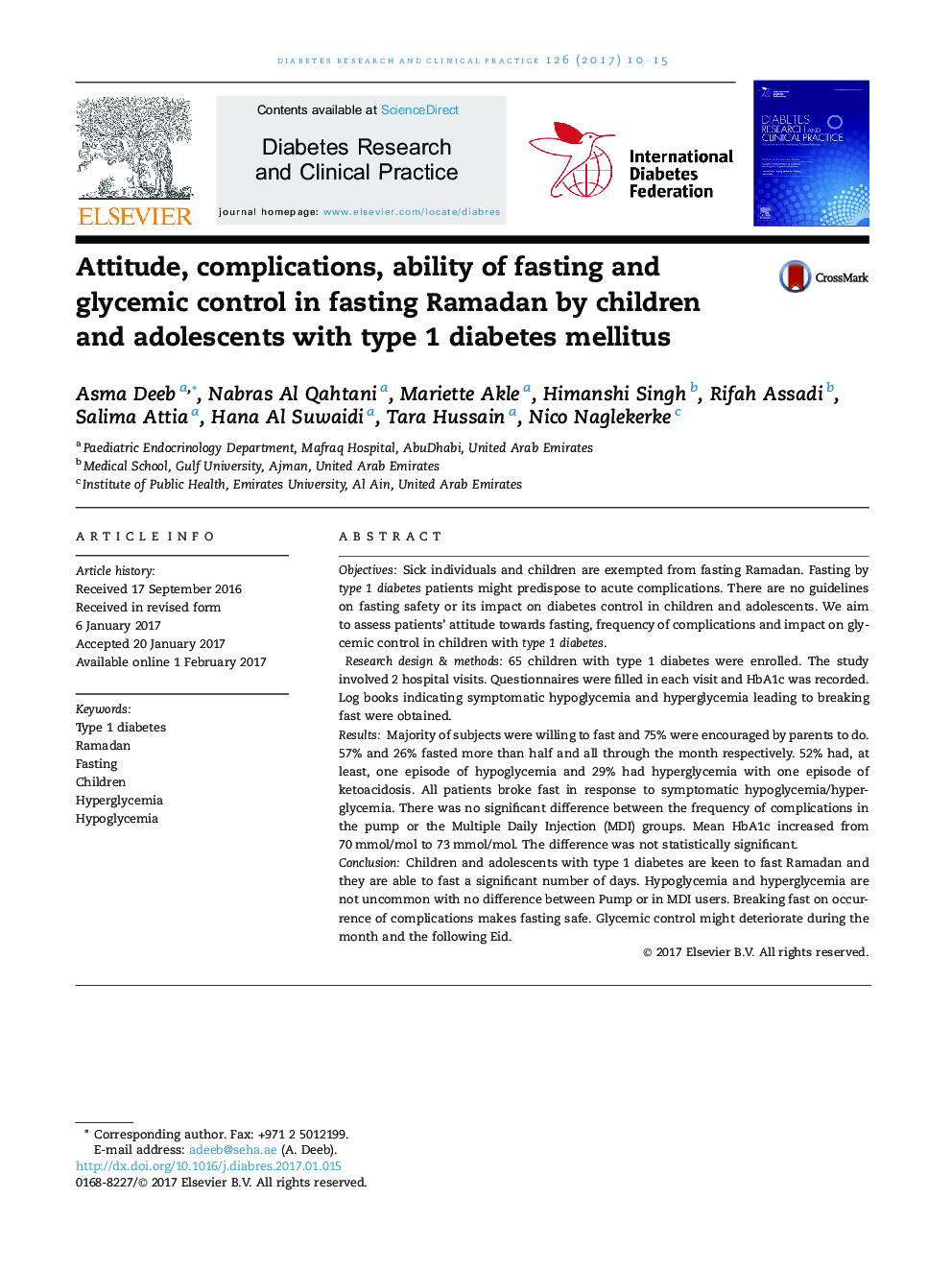| کد مقاله | کد نشریه | سال انتشار | مقاله انگلیسی | نسخه تمام متن |
|---|---|---|---|---|
| 5587083 | 1568789 | 2017 | 6 صفحه PDF | دانلود رایگان |
- Studies on safety of fasting Ramadan by young people with diabetes are lacking.
- Muslim children and adolescents with diabetes are keen to fast Ramadan.
- Young people with type 1 diabetes are able to fast a significant number of days.
- Hypoglycemia and hyperglycemia occur during Ramadan but breaking fast ensures safety.
- MDI and insulin pump therapy are equivalent in the frequency of complications.
ObjectivesSick individuals and children are exempted from fasting Ramadan. Fasting by type 1 diabetes patients might predispose to acute complications. There are no guidelines on fasting safety or its impact on diabetes control in children and adolescents. We aim to assess patients' attitude towards fasting, frequency of complications and impact on glycemic control in children with type 1 diabetes.Research design & methods65 children with type 1 diabetes were enrolled. The study involved 2 hospital visits. Questionnaires were filled in each visit and HbA1c was recorded. Log books indicating symptomatic hypoglycemia and hyperglycemia leading to breaking fast were obtained.ResultsMajority of subjects were willing to fast and 75% were encouraged by parents to do. 57% and 26% fasted more than half and all through the month respectively. 52% had, at least, one episode of hypoglycemia and 29% had hyperglycemia with one episode of ketoacidosis. All patients broke fast in response to symptomatic hypoglycemia/hyperglycemia. There was no significant difference between the frequency of complications in the pump or the Multiple Daily Injection (MDI) groups. Mean HbA1c increased from 70Â mmol/mol to 73Â mmol/mol. The difference was not statistically significant.ConclusionChildren and adolescents with type 1 diabetes are keen to fast Ramadan and they are able to fast a significant number of days. Hypoglycemia and hyperglycemia are not uncommon with no difference between Pump or in MDI users. Breaking fast on occurrence of complications makes fasting safe. Glycemic control might deteriorate during the month and the following Eid.
Journal: Diabetes Research and Clinical Practice - Volume 126, April 2017, Pages 10-15
